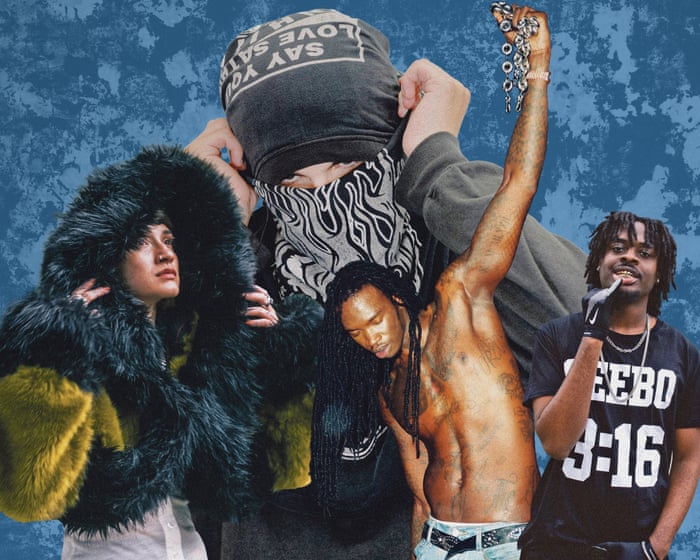In Budapest today, bubble tea and all-day brunch—popular symbols of the social media era—are as common as historic coffee houses and tourists lining up for Danube cruises. But there’s something new in the EU’s only one-party state: politics is back.
For 15 years, Viktor Orbán’s election wins seemed inevitable. Now, a credible challenger has emerged. Péter Magyar is no savior—in fact, he comes from Orbán’s own Fidesz party. But polls suggest his relatively new, pro-Western Tisza movement could defeat Orbán in April’s elections.
This outcome would matter not only to Hungarians. After years of Orbán blocking EU policies, the future of the union and European democracy itself are on the line.
Hungary is what analysts call an “informational autocracy.” Rather than jailing critics, Orbán uses more subtle methods to silence opposition. Central to his 15-year rule is pushing populist stories that turn public opinion against “liberal elites”—many say at the cost of democracy and the rule of law, even beyond Europe.
Orbán’s model—weakening independent media, fueling culture wars, and undermining constitutional checks—may have inspired Donald Trump’s alleged attacks on U.S. democracy.
“I watched it happen in Hungary, now it’s happening here,” a former U.S. ambassador recently warned. A new documentary about Orbán is being called essential viewing for Americans due to parallels with Trump’s tactics.
Repackaged MAGA-style ideas are now boosting Europe’s populist right in a powerful feedback loop. Andrej Babiš, an ally of Orbán and France’s Marine Le Pen, is favored to return to power in the Czech Republic. Poland recently elected a nationalist president, and in the UK, Nigel Farage’s Reform party is gaining attention. Many see Orbánism as the common thread.
The Central European University stands as a symbol of Hungary’s role as a testing ground for reversing democracy. Once a beacon of academic freedom in post-communist Eastern Europe, its Budapest campus now sits empty after a 2017 law forced the Soros-linked institution to leave.
Yet last week, the lecture halls were busy again. Budapest’s progressive mayor, Gergely Karácsony—a persistent critic of Orbán—hosted a “democracy forum” and urged European politicians to counter the narratives that fuel populist support. Whether Hungarians are ready for non-populist solutions remains to be seen.
“Orbán fatigue” is widespread, even in his rural base, says academic and former politician Zsuzsanna Szelényi. But the main concern for most is the economy. Orbán is seen as out of touch—his conspiracy-laden, anti-EU rhetoric feels disconnected from daily conversations about high food prices, healthcare, and corruption.
While backlash against Orbán’s crony-run system is not new, the energy of the opposition is. As one observer put it, “We’ve had a leadership crisis for 15 years, and that is over.””That’s what gives Magyar a chance,” said Szelényi.
Katalin Cseh, an opposition MP whose party has decided not to contest the election to improve the odds of unseating Orbán, agrees that Magyar’s centre-right policies are vague. “But we share a strong belief in restoring democracy and ending systemic corruption,” she said.
Weakened… but don’t write him off
Orbán has won four consecutive elections by a landslide. Underestimating him would be foolish.
Still, Krekó, director of the independent Political Capital thinktank, sees a crack in the “total confidence” that has long defined the regime.
Orbán’s attempt to ban Budapest Pride in June backfired. The march turned out to be the largest ever, partly thanks to Karácsony—a massive display of rainbow flags and anti-government defiance.
Krekó also points to a Fidesz stumble over a “chilling, draconian” bill that would have blacklisted organisations with any foreign ties. The bill has been put on hold, possibly due to internal Fidesz worries that it could backfire.
“This shows the government is weaker than before; the economic situation is dire; in opinion polls it is lagging behind Tisza; diplomatically within the EU its lack of allies has become quite desperate,” Krekó said.
Yet Orbán still has powerful tools at his disposal. Expect a range of generous state-funded incentives, such as extra payments for pensioners and tax cuts for mothers with two or more children.
“In 2022, Fidesz spent 6% of Hungary’s GDP on transfers that people received before the elections. Many women and no one under 25 pays income tax anymore. We can expect more of the same this time,” Szelényi said.
Campaigns that demonise “enemies of the people” to discredit the opposition are another tried-and-tested method, Szelényi said. In the 2018 election, fears were stirred by linking refugees to terrorism. This time, the focus is on Ukrainians—Volodymyr Zelenskyy’s face appears alongside Ursula von der Leyen’s on posters as enemies. Magyar is unconvincingly portrayed as an agent of Kyiv.
“Orbán’s methodology is all about narratives and storytelling and threats and emotions,” Szelényi said. “Interestingly, migration is no longer discussed. By 2019 it was a non-issue because, of course, in Hungary we need migrants.” State agencies have quietly recruited hundreds of thousands of migrants from the Philippines and Vietnam to fill job vacancies.
Game of drones
Orbán’s dizzying geopolitical manoeuvres—maintaining friendships with Trump, the Kremlin, and China at the same time—could either backfire or help him stay in power.
Hungary is a NATO member. Russian military provocations, like the recent incursion of Russian fighter jets into Estonian airspace, could make Orbán’s closeness to Putin difficult to defend. Even Trump is now saying NATO should shoot down Russian aircraft.
Some Hungarians, including Karácsony, want an end to Orbán’s ambivalence toward Russia. “My great-grandparents were taken…Many Hungarians were taken away to forced labor camps by Russian soldiers and never returned alive. These stories are deeply engraved in the Hungarian soul,” he said.
Meanwhile, energy agreements continue to supply Hungarian consumers with cheap Russian oil and gas—at least for now.
Trump may be cautious about Hungary’s ties with China, but Orbán’s courtship of Beijing ensures investment flows into the country. In exchange, “China gains a Trojan horse within the European Union,” according to Katalin Cseh.
### The Battle to Control the Narrative
In the cramped basement rooms of Budapest’s Terror House—where visitors are presented with the Fidesz-approved version of 20th-century Hungarian history—a video plays on a loop. It shows a younger, leaner Orbán delivering a speech about the evils of foreign invaders to enthusiastic applause.
Szelényi knew Orbán well in the 1990s when they were both part of Fidesz’s early leadership and the party leaned toward the liberal center. She left as he steered the party toward radicalization but recalls his reaction to losing the 2002 election. “That’s when he became very angry. He believed the loss was unjust and blamed liberal media elites. It became like a bug in his head.”
Now that his Christian nationalist ideals have made him a spiritual leader of a global MAGA-style movement, would he accept an electoral defeat at home? Szelényi finds it hard to imagine. “Orbán does not want to lose. He has completely restructured the Fidesz campaign and placed himself at the forefront.”
New EU rules banning political advertising on social media take effect next month, but Fidesz is building its own online army to spread Orbán’s message through so-called digital “fighters clubs.” Reflecting on the struggle to control public opinion, Szelényi sighs. Whoever dominates the narrative will win, she said.
“It will be a brutal campaign.”
To receive the full version of This Is Europe in your inbox every Wednesday, subscribe here.
Frequently Asked Questions
Of course Here is a list of FAQs about the challenge to Viktor Orbáns leadership with clear and concise answers
General BeginnerLevel Questions
1 Who is Viktor Orbán
Viktor Orbán is the Prime Minister of Hungary He has been the countrys dominant political figure for most of the period since 2010 leading the Fidesz party
2 What is the serious challenge hes facing
The challenge comes from a new political movement led by Péter Magyar He has organized largescale protests attracting tens of thousands of people who are dissatisfied with Orbáns government
3 Who is Péter Magyar
Péter Magyar is a former insider within the Fidesz system He was married to a former justice minister and has used his insider knowledge to publicly accuse the government of corruption and mismanagement making him a credible threat
4 Why are people protesting against Orbán now
Public frustration has been building for years over issues like the high cost of living perceived corruption and a healthcare system under strain Magyars movement has given this frustration a new focused voice
5 Can Orbán actually be toppled
It is very difficult in the short term Orbáns party has a strong parliamentary majority until the next scheduled election in 2026 The challenge is about weakening his longterm power and building a viable opposition for the future
Advanced InDepth Questions
6 What makes this challenge different from previous ones
Previous opposition was often fragmented Péter Magyar has quickly united disillusioned voters from both the left and the right and his background as an insider makes his criticism harder for the government to dismiss
7 What are Orbáns main advantages that make him hard to beat
He has a large loyal voter base control over most media outlets which shape public opinion a strong party machinery and a constitutional majority in parliament that allows him to change laws in his favor
8 What is the role of the European Union in this situation
The EU has frozen billions of euros in funding for Hungary over concerns about the rule of law and corruption This economic pressure adds to the domestic discontent but has not yet forced Orbán to change his policies significantly
9 What would it realistically take for Orbán to lose power
The most likely path would be for the opposition to



